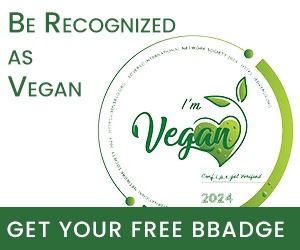For individuals who cringe at the sight of veggies, embracing a vegan lifestyle may seem daunting. However, with strategic planning and creative alternatives, it’s possible to thrive on a plant-based diet.
Understanding Vegetable Aversion
Delving into the reasons behind vegetable aversion sheds light on potential solutions to overcome this dietary challenge.
Exploring Supertaster Sensitivity
Some individuals possess heightened taste sensitivity, known as supertasters, making them particularly averse to bitter flavors often present in vegetables. Identifying as a supertaster may explain aversion to nutrient-rich veggies like broccoli and cauliflower.
Tackling Vegetable Dislike: Tips and Tricks
Conquering vegetable aversion requires innovative culinary approaches to enhance palatability and nutritional intake.
1. Enhancing Flavor with Salt
A sprinkle of salt can neutralize bitterness in vegetables, making them more palatable without compromising health. However, moderation is key to avoid adverse health effects associated with excessive salt consumption.
2. Embracing Spice
Harnessing the power of spices like chili, cumin, and garlic can transform the taste of vegetables, making them more enjoyable and flavorful. Experimenting with different spice combinations adds variety to plant-based meals.
3. Masking Flavors with Sauce
Incorporating flavorful sauces, such as vegan cheese-based or tomato-based options, can effectively mask the taste of vegetables, catering to diverse palates. Experimenting with sauce variations adds excitement to plant-based dishes.
4. Perfecting Cooking Techniques
Properly cooking vegetables until tender and incorporating complementary ingredients like olive oil and lemon juice can enhance flavor and texture, making them more appealing to reluctant veggie eaters.
Exploring Alternative Nutritional Sources
For individuals averse to vegetables, exploring alternative nutritional sources ensures a well-rounded vegan diet.
1. Embracing Superfoods
Integrating nutrient-dense superfoods like nuts, seeds, berries, and whole grains provides essential vitamins, minerals, and antioxidants, supporting overall health and well-being.
2. Incorporating Superfoods Creatively
Incorporating superfoods into daily meals through smoothies, yogurt, cereal, or baked goods offers convenient and versatile options to boost nutritional intake.
Addressing Nutritional Gaps
To mitigate potential nutritional deficiencies associated with limited vegetable consumption, consider supplementing with vegan multivitamins and prioritizing hydration with adequate water intake.
Conclusion: Navigating Veganism with Vegetable Aversion
While aversion to vegetables poses a dietary challenge for aspiring vegans, adopting creative strategies and embracing alternative nutritional sources can pave the way for a successful plant-based journey. By prioritizing health, exploring diverse culinary options, and supplementing intelligently, individuals can thrive on a vegan diet while accommodating personal taste preferences.








